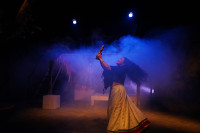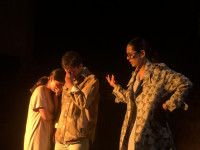Theater
‘Sickroom’: Wounds seen and unseen
Two people keep finding each other through heartbreak and accidents, hoping for comfort in the other’s presence.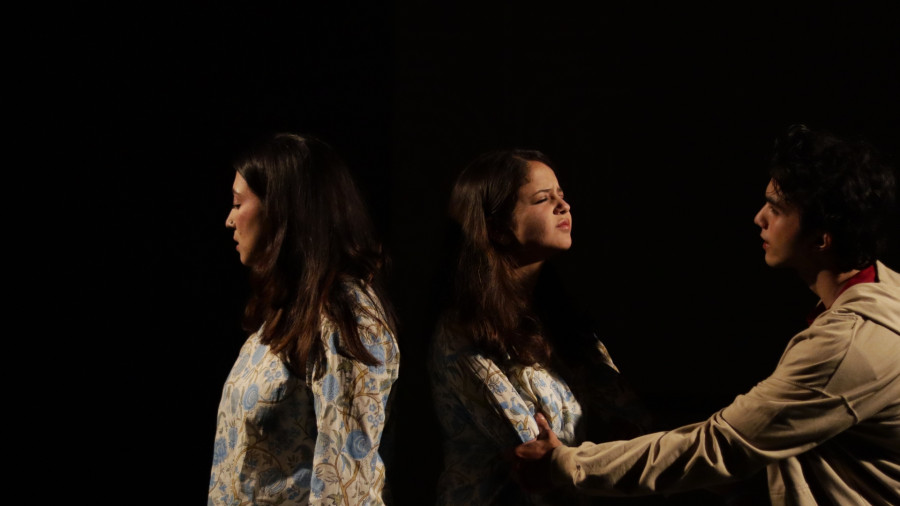
Anish Ghimire
Who are we without our pain?
Yet, when we meet someone, we don’t see the sorrow clinging to their heart or the scars beneath their sweater sleeve. We see them for what they choose to show—a replica of a perfect human with no emotional baggage to carry. But once all the layers are unravelled and the person stands naked in front of us, with all their defences down, we’ll see their imperfections—physical and emotional. But do we stop loving them? Absolutely not.
This is what the protagonists of ‘Sickroom’ see in each other. The play, currently running at Kausi Theatre, has delicately handled the relationship between two complex people. Adapted from ‘Gruesome Playground Injuries’ by Rajiv Joseph, the story revolves around Diwas and Kalina, who, despite their sorrowful life, keep weaving in and out of each other’s lives. Why? Because Diwas thinks Kalina’s touch heals his sickness. And for Kalina, whenever something nice has happened to her, it is because of Diwas.
We start with a scene of the school sickroom, where child Kalina (played by Noor Khanal) is lying in bed because of an upset stomach. Soon, child Diwas (played by Abishek Khadka) enters because he rode his bike off the school roof. Sometimes, he causes an accident and sometimes stumbles into one. He is bloody bruised on his forehead. Like any curious child, they ask each other about their pain, and a question frequently asked throughout the story is asked for the first time, “Does it hurt?”
This question is repeated often because every time they meet, one of them is sick. The foundation of their relationship is pain. They worry about each other because they know what pain is like, and they don’t want the other to feel it. Yet, their lives lead them to it, and even though it is obvious they care about each other, it is never openly discussed.
Years pass, and they cross paths again—always drawn together by pain. In one scene, when adult Diwas (played by Sudam Ck) is in a coma, a very anxious adult Kalina (played by Akanchha Karki) comes to visit him. He is lying on the bed, as she tells him, “I have started applying moisturiser and have begun eating healthy.” This minor update about her life might not mean much, but she knows how much it means to him. She walks around, trying to remember the good things in her life to tell him, but the tank has run empty. “What else? What else?” she mumbles until she sees that Diwas’s hands are dry. She sits down and moisturises his hands, a new self-care hack she has recently embraced.
“You have to wake up Diwas, because I am not well,” she says on the verge of crying.
The play reminded me of the series ‘Normal People’, where similar emotionally complex characters cannot remain in each other’s lives despite being drawn to each other. We all grew up watching happy-ending Bollywood movies where one-dimensional characters, whose only life purpose is to find love, end up together. However, as adulthood dawns on us and we build our behaviours based on childhood experiences, relationships become complicated.
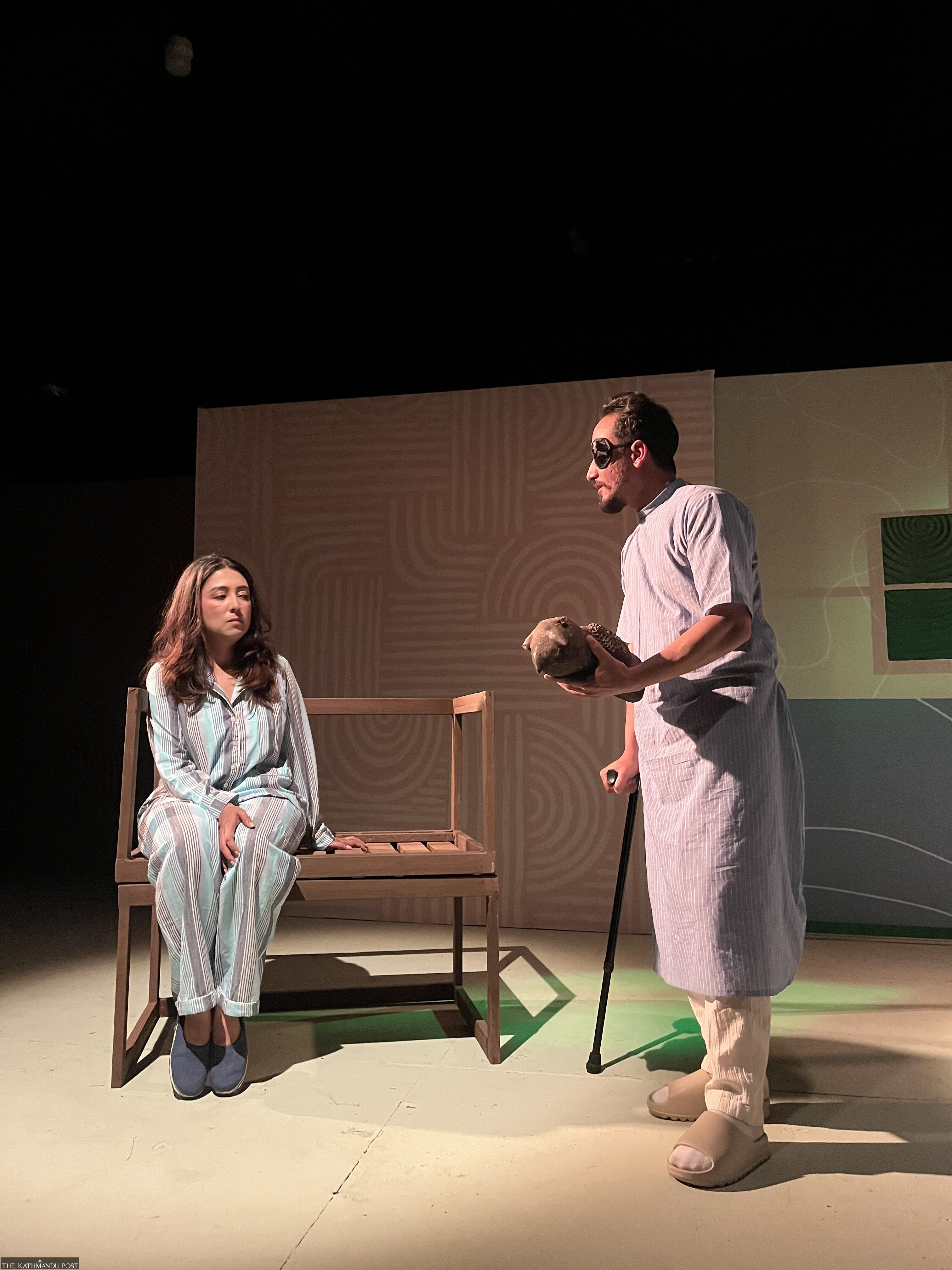
Carrying unresolved pasts and deep emotional wounds can cause us to act out in ways we don’t understand. We push people away, say things we don’t mean, and engage in unhealthy coping mechanisms.
Kalina’s tough childhood led her to self-harm, and she believes having sex would be a ‘release’ from her feelings. Hoping to obtain this release has her in a messy relationship, which Diwas doesn’t approve of. The scene where young Diwas rages when he learns young Kalina was forced into having sex is so well done that an audience member sitting beside me began crying. Her friend placed his hand on her shoulder, and she composed herself.
The tension of the things said and unsaid settles in you—it breaks your heart. At the same time, quirky dialogues and comical movements will have your laughter echoing through the theatre. Not everyone can understand the art of weaving comedy into a tragedy. But director Karki has masterfully done that—the kind of mix we see in series like ‘Fleabag’.
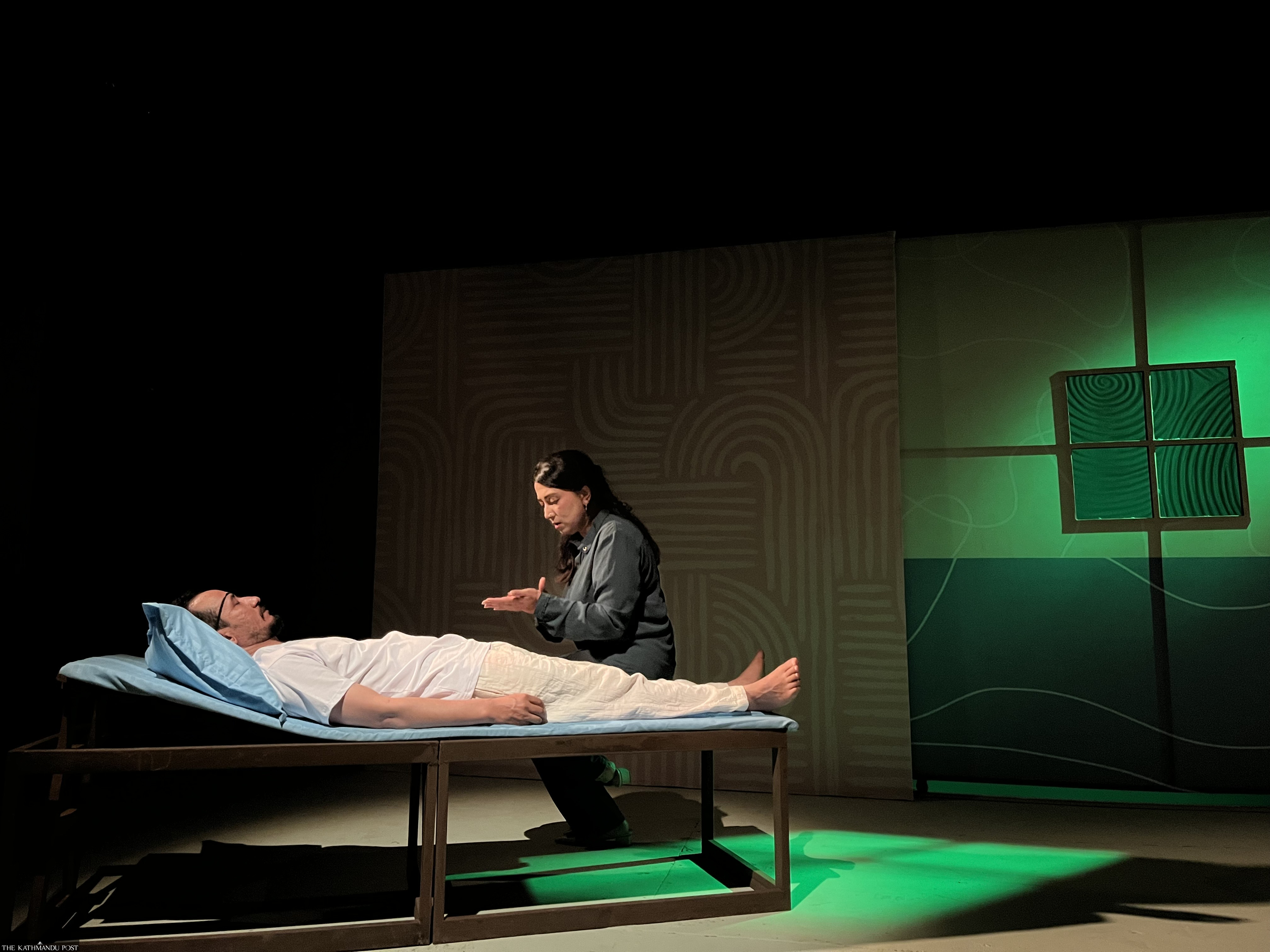
The heavy pauses and solemn music put you in an almost daze-like state. The actors not only deliver their lines, but also act through their eyes. Often, tears run down their faces, and when not, their eyes are wet like a July forest, on the verge of meltdown because they carry such heavy, unexpressed love for one another. Battling their wars, they cannot open their arms wide enough to embrace each other. (Tip: Grab the front seat to see the tears up close).
Diwas repeatedly says that Kalina’s touch heals him, but she doesn’t want to believe him. Her ignorance comes from her situation. By being a mess herself, how can she heal another person? However, in one scene, when Diwas is painfully sick, Kalina says, “I’ve come to touch you and then I’ll go.” Has she finally learned that, despite being sick, she can heal him just by being present? Or is she only doing that because Diwas believes so?
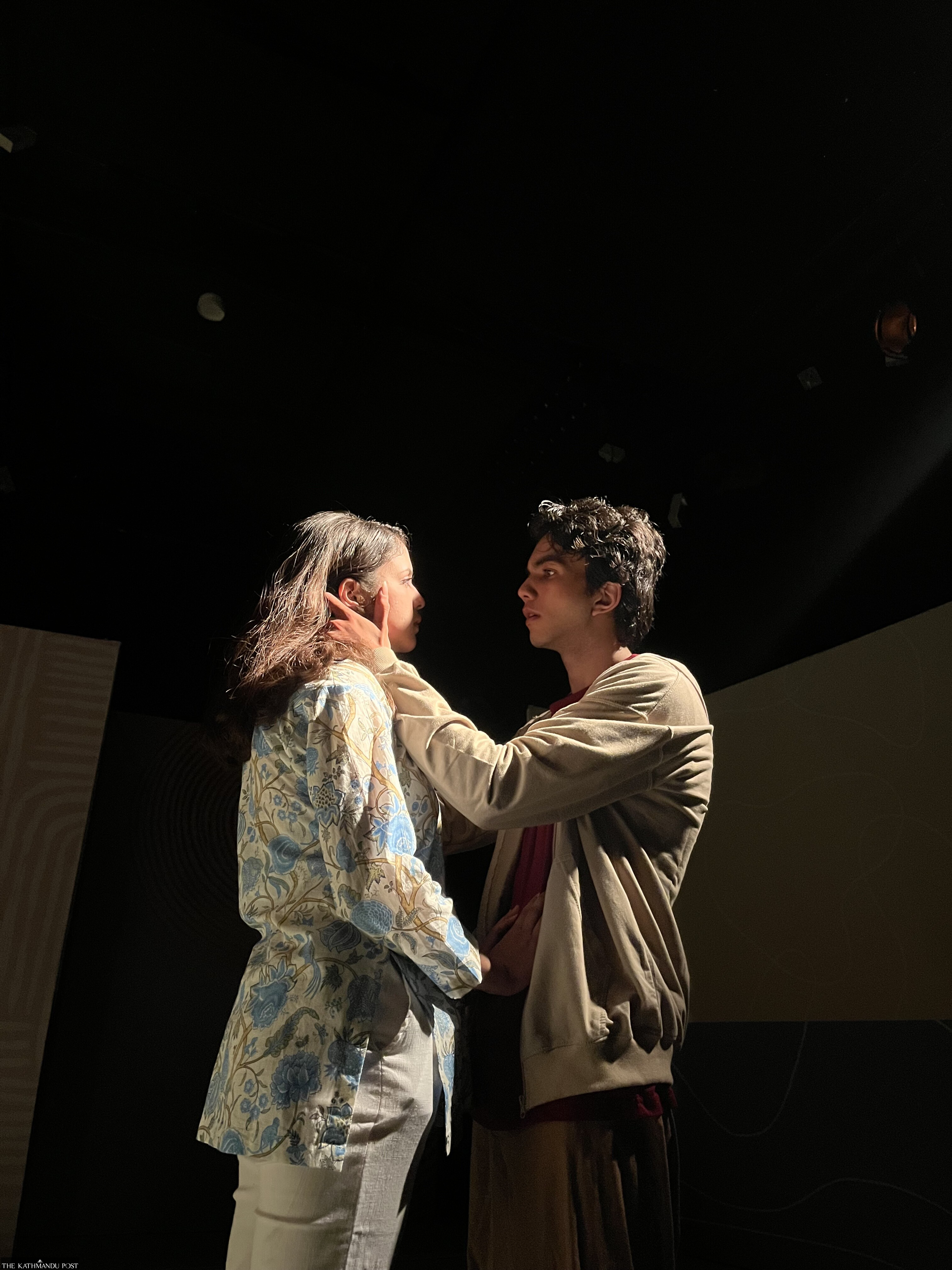
Towards the end, the play brings together the child and adult versions of two characters onstage simultaneously. The past and present selves engage in direct conversation, blurring memory and reality, age and experience. When the adult Diwas poses a question, the child Kalina responds, suggesting a collapsing of time where all four—the child and grown versions—exist in one shared emotional space.
This layering of timelines adds depth, showing how our younger selves shape us, and how our present selves often long to speak back to them.
When they reminisce about their younger days, the child version of them appears in the background in a dim light, suggesting the memories are blurry yet very much there.
In this dance of pain and love, of memory and desire, the play shows how relationships can be both healing and wounding. In the end, it reminds us that without those we love, we are nothing. Without our scars, we are no one.
Sickroom
(Trigger warning: Mentions of self-harm and injuries)
Adaptation and direction: Akanchha Karki
Cast: Abishek Khadka, Noor Khanal, Sudam CK, Akanchha Karki
Venue: Kausi Theatre, Teku, Kathmandu
Showtimes: Every day except Tuesday until July 12. Extra 1:00 pm show on Saturdays.




 13.12°C Kathmandu
13.12°C Kathmandu



